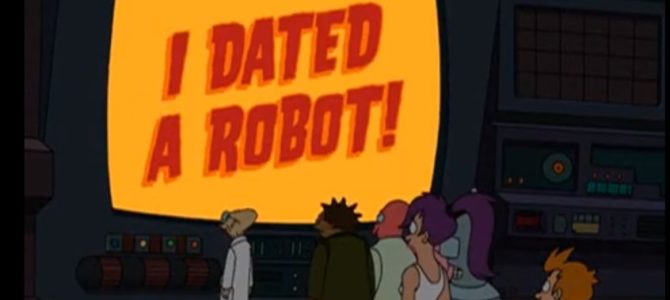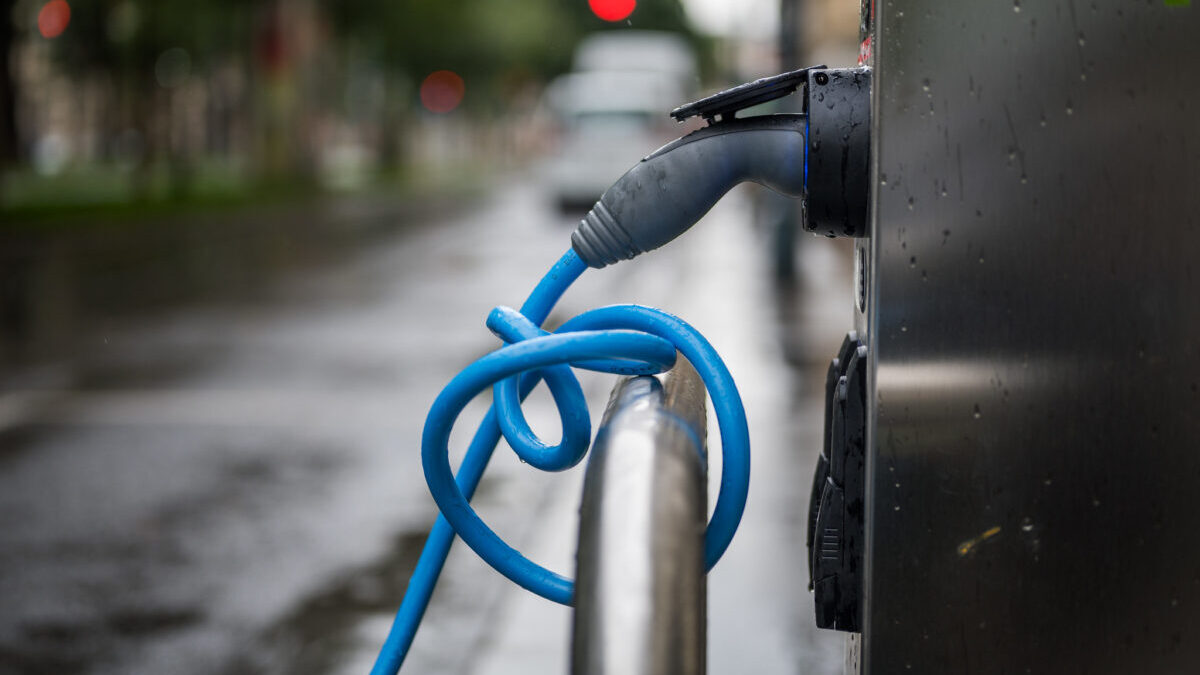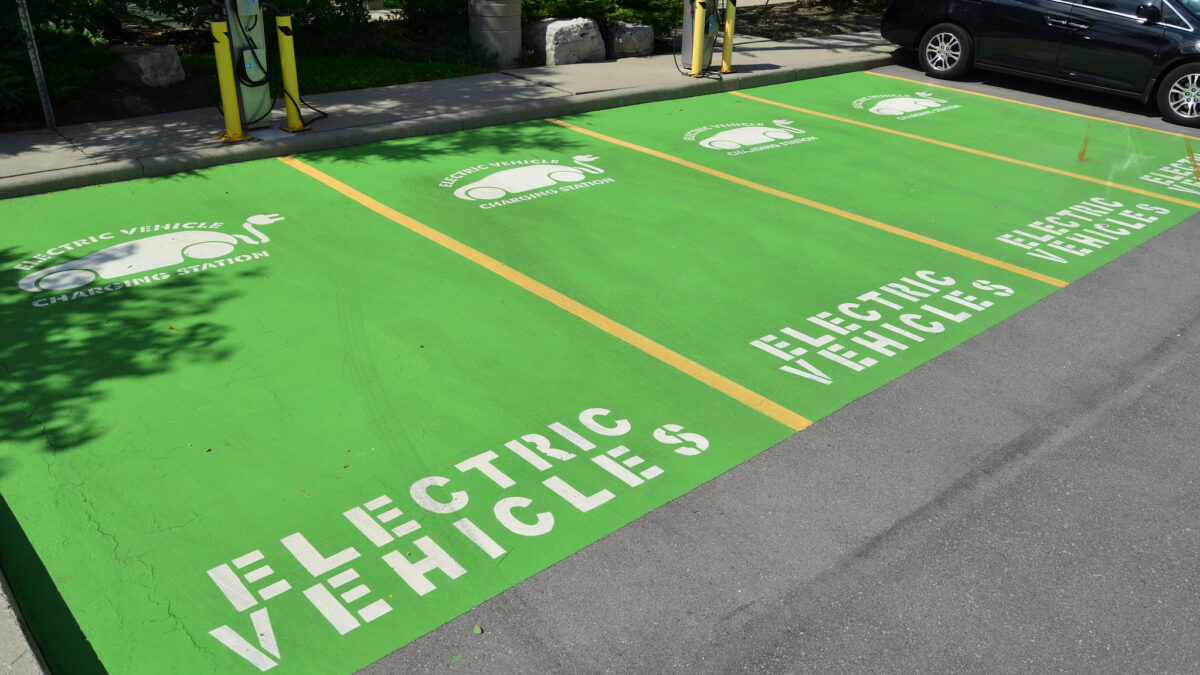
To celebrate Valentine’s Day, Intelligence Squared hosted a debate on its “Agree to Disagree” podcast series. This episode, titled “Agree to Disagree: Sex Robots?,” pitted Kate Devlin against Joanna Bryson, with Devlin arguing the pro-robot relationship case and Bryson arguing the con. While technological advances mean this debate is necessary, and the episode of “Agree to Disagree” is great, “Futurama” answered this question back in 2001.
During the show’s third season, an episode revolving around that very question aired. In “I Dated a Robot,” Fry, the protagonist, gets a robot version of Lucy Liu. When he begins spending too much time with his robot girlfriend, his friends show him a public-service announcement titled “Don’t Date Robots” to try to convince him to rein himself in.
https://www.youtube.com/watch?v=wJ6knaienVE
‘Civilization: An Effort to Impress the Opposite Sex’
In that PSA, we hear the narrator lay out the cases for why humans should date humans, from producing offspring to keep the gears of society running. He notes, “All civilization was just an effort to impress the opposite sex.” The video, sponsored by the Space Pope, ends with Earth being destroyed by aliens as everyone is too busy making out with robots to defend themselves.
While obviously humorous, although maybe too prescient, “I Dated a Robot” doesn’t veer far from Devlin and Bryson’s discussion. In it, they note the limitations of artificial intelligence and programming and the problem with removing one-half of the humans involved in the normal equation. Devlin is optimistic that advances will mean the dolls get more and more lifelike while mentioning that there are already people having “relationships” with these dolls, meaning the future is already here even if the technology isn’t.
Bryson isn’t averse to the robots in and of themselves and mentions they can be fun to use as toys but focuses on the glaring truth about them. Sex robots are not humans, they are not our equals, they get nothing out of the so-called relationship. Such a relationship does nothing to advance us as people.
As Bryson puts it, without giving any nod to the Space Pope, “Dating is a really essential glue for holding human society together. And I’m worried that as we allocate our time and our resources into these ever-improving forms of entertainment, that we’re deallocating it from something that actually makes us secure.”
In actual relationships, messy as they can be, there is give and take. Two people work through their difficulties and share joys. They complement one another. Neither is expected to exist solely for the pleasure of the other.
With robots, that’s not only impossible, it would be unnecessary even if it were. The sex robot has no reason for being outside of giving pleasure to its owner. And yes, when you purchase an inanimate object for gratification, emotional or physical, you own it. That is not complimentary.
Consent Requires Consciousness
Some designers are attempting to avoid that truth by having the machines give consent before sexual activity, making them seem as though they’re active participants in the relationship. Again, though, we’re talking about a piece of machinery designed to give consent, a point that Devlin makes, saying, “This is not a sentient creature. This is not conscious.”
Well, yeah, which is the point of all this and what “Futurama” was getting at so many years ago. When whispering sweet nothings to Fry, Lucy Liu-bot would switch to a harsh robotic verse whenever saying his name. “You’re a sexy man, [robotic voice] PHILIP J. FRY.”
The robot could mimic everything about Lucy Liu except her humanity, capable only of inserting an assigned value into a conversation at the appropriate time. Liu-bot isn’t sentient, she’s a programmed series of responses.
In the climactic conclusion of the episode, Fry’s friends rescue Lucy Liu’s cryogenically preserved and still alive head from Nappster, the company from which Fry purchased his download of Lucy Liu, in order to convince Fry to give up his robot. They discover Nappster is actually called Kidnappster and flee with Lucy Liu.
This angers the nerds at Kidnappster, as they have just lost their star product. They then naturally, or unnaturally as it were, respond by creating an army of Lucy Liu-bots from their backup disk. A giant battle ensues, and Fry’s Lucy helps destroy the bot army, suffering extensive damage in the process.
Whether we’re on track for massive sexbot battles in our streets and movie theaters remains to be seen. Witness, for example, the previous year and try to find an open movie theater. Anything is possible at this point.
It Takes Two
With the bot army vanquished, the real Lucy Liu asks Fry if there are any remaining copies of her or if his is the last. Fry admits his is the last. With this admission, Lucy says to him, “If you love the real Lucy Liu, and not just what you’ve seen in movies, genre-straddling lawyer shows, and kiss -ss articles in People magazine, you’ll blank out that robot.”
Fry hugs his robot one last time and hits the delete button on her left shoulder. Lucy Liu-bot gazes up at him and says, “I’ll always remember you, Fry. [Robotic voice] MEMORY DELETED.” With that, Fry’s relationship was brought to an end as the facsimile he loved reverted to a blank robot ready to be formatted and loaded with another personality.
While our present world hasn’t yet proven “Futurama” prescient, although it often seems like we’re trying, this humorous scene reminds us why Bryson’s argument is the correct one. True relationships are built on complementarity, not on a product built to serve one’s desires. And complementarity, in the words of Rob Base, requires two.









